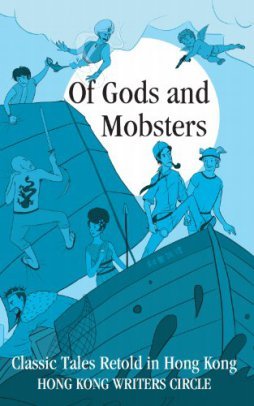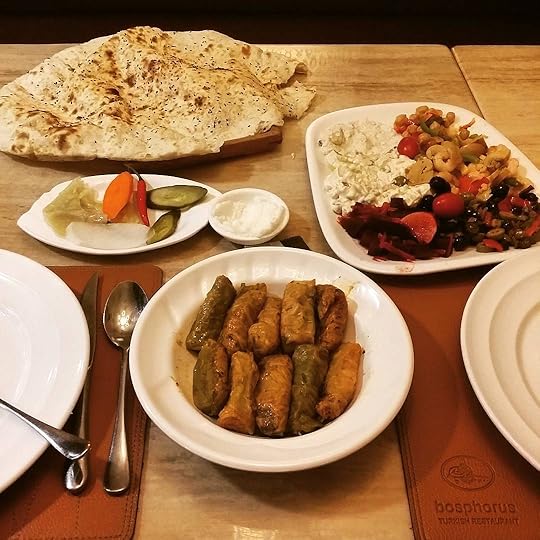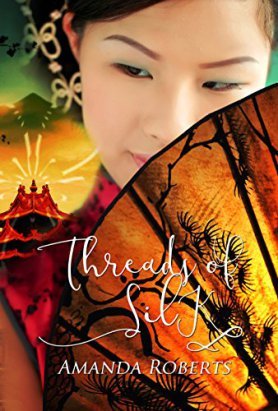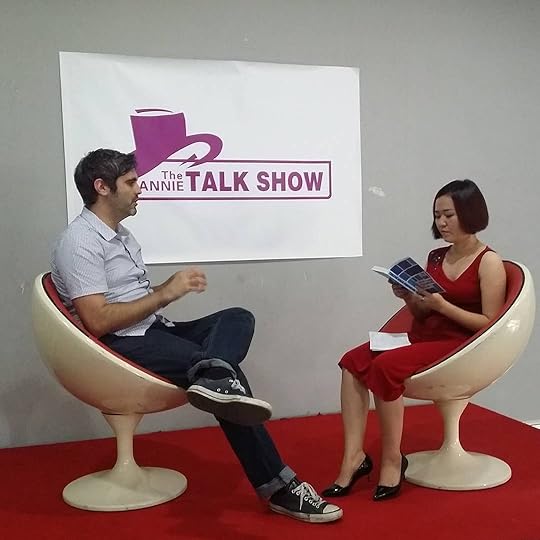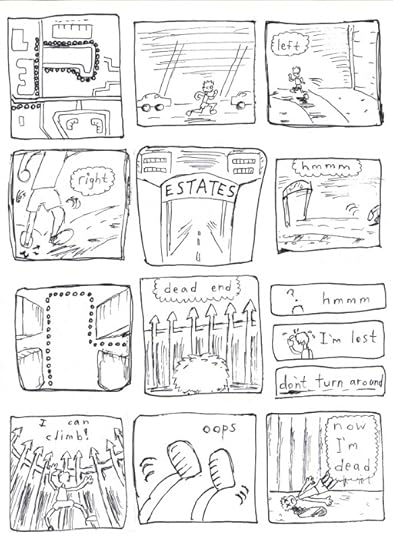Ray Hecht's Blog, page 19
October 10, 2016
Of Gods and Mobsters by the Hong Kong Writers Circle
Of Gods and Mobsters is a 2013 anthology of short stories published by the Hong Kong Writers Circle (you may recall that I participated in a podcast for the HK-based literary society). The Writers Circle publishes anthologies on an annual basis, and this volume in particular was recommended to me. I am pleased to report that the stories are excellent and the quality of writing coming out of Hong Kong is very high indeed.
The stories are grouped together into three parts: Of Gods, Of Tales, and Of Mobsters. Broadly speaking, the stories are split between the genres of magical realism and crime. The pervading theme throughout all are unique examinations of modern cosmopolitan experience—specifically within the strange land of contradictions that is Hong Kong.
The first and longest part tells stories of Western mythology in this Eastern-yet-international setting, which range from James Joyce-esque references to Neil Gaiman-style stories of ancient gods in the contemporary era. Several stories star the Mount Olympus pantheon, starting with Reena Bhojwani’s Hidden in the Night, an entertaining romp about Apollo and Zeus and Hera interacting in the city. Makes for very interesting juxtaposition.
The middle section, Of Tales, still fits with the style of the rest of the book. Aber Revisited by Joy Al-Sofi is a fable in the style of Kipling full of talking tigers, yet the tiger is represents Chinese symbolism. One of the best stories is The Standard by the anthology’s editor SCC Overton, a tragic science fiction romance about the fascinating concept of ethnic minority DNA becoming the future currency standard. It is a genre-bending story, very literary and very poignant. A futuristic banker of all people falls in love with a woman who is a Hakka specimen carrying her people’s genome for the sake of the economy. What a way to capture the essence of Hong Kong.
The final part Of Mobsters exemplifies the spirit of such themes by taking a myriad of story-telling directions. Some mystery, some even satire. Midlife Triad by James Tam is about gangsters in jail who are fans of ‘wuxia’ pulp stories. Guanxi by Edmund Price contrasts the rich (literately) high-life on the Peak, with corrupt Filipinos who break into the world of one wealthy man. I found The Curious Resemblance to the Case of the Speckled Band by Kim Grant very charming, an amusing postmodern take on Sherlock Holmes about a fan who happens to named Holmes who bumbles and strives to be a detective, and actually has a wife named Watson. And The House by Melanie Ho references the board game Clue (known as Cluedo in some countries).
Perhaps the best is saved for last with Ian Greenfield’s story Mr Tse and the Pied Piper of Homantin, which ties the entire anthology together well. The story is both a crime story, and an homage to fairy tales of old. A great satire full of quips on Hong Kongers complex relationship with mainlanders, the shallowness of pop stars, and the prevalence of parent’s dependence on tutors. Ostensibly a retelling of the Pied Piper (also with Snow White, Miss Muffet, and even vampires therein), Mr Tse finds a way to use its structure lambaste nearly everyone in Hong Kong.
Like any anthology, Of Gods and Mobsters has many different short stories of various styles and each may not suit all readers. However, no matter a reader’s preference it cannot be denied that the quality is always high. Not to mention, there are also poems of depth sprinkled within for yet more diversity if one isn’t just into prose. The only major criticism, as it goes with expat literature, is that much of it might only make sense if the audience is familiar with the area. One frequent phrase is “Fragrant Harbour”, which of course is a literal translation of the characters for Hong Kong, but that wouldn’t necessarily be known to most around the world. Nonetheless, for fans of the region the book is sure to have many stories exemplifying the spirit of 香港…
Available in Hong Kong bookstores and on Amazon.com.


October 5, 2016
Not bungee-jumping in Guangzhou
Here in China, we recently celebrated the National Day holiday which remembers the founding of the modern People’s Republic of China’s founding in 1949. Whether you are a communist or not, everybody gets the day off and it’s time to go on a trip…
Having recently moved, me and my girlfriend wanted to check out the train station in nearby walking distance from our new home. Shenzhen and Guangzhou are very close, by the way, and so it was decided we’d take a trip for a couple of days to the big(ger) city!
It does tend to get very crowded on Chinese holidays. The train didn’t even have seats, although we did sit in the dining car most of the way. Luckily, Guangzhou wasn’t that bad. I suppose most people go to the more popular tourist spots and the first-tier cities get emptied out.
Nice time. I like going to the provincial capital on occasion. Although I prefer living Shenzhen–where it seems slightly less depressing to me somehow.
We went to eat delicious Turkish food in Taojin, and African food in Sanyuanli. The Muslim and African neighborhoods of GZ are excellent places to walk around and explore the scene. Then we made a day of going to Baiyun Mountain, as tourist as it gets there. The cable car made for an amazing view.
What I really wanted to do was go bungee jumping! Lately I’ve been feeling like a need to do something drastic to fight off the haunting ennui of life, and jumping off a cliff might just do the trick. However, after psyching myself and mustering up all the willpower I could muster, when I got there they said it was sold out for the day and I had to reserve 24-hours early
September 30, 2016
End of the month…
… and I don’t have any big blog planned. Whatever to write about~
I try to post something at least once a week. I’m afraid I don’t have enough to say this time.
It’s been a hell of a month. I secured a very busy and slightly lucrative freelance editing job. When it’s all out there perhaps I’ll share. Suffice to say, rewriting an entire book over the course of September wasn’t easy. But very good work to do.
In keeping busy, I’ve been very antisocial lately. Which works for me. Most of the time I’d rather stay in and read and watch movies and occasionally play video games, to be honest. Could it be I’m getting boring?!
I have plans to release some of my own writing. In due time. And some book reviews coming up, perhaps interviews. There’s always Chinglish. What else should I share? I have an idea for a short blog series about literature under a medium I haven’t explored as yet.
So stay tuned…


September 21, 2016
Talk Show video
A few weeks ago I participated in a nice little talk show in Shenzhen to promote my novel, and riff about writing and creativity. I posted some info here: Annie Talk Show
Unfortunately I only had a link to the QQ video at the time, which wouldn’t embed. I am now pleased to share that I have since uploaded it to my seldom-used YouTube page and that’s much easier for view non-Chinese Internet viewing.
I’m afraid it may not be my best presentation of myself, but I’m always pleased if anyone would like to watch…


September 13, 2016
Monthly Chinglish roundup
It’s been a while since I posted any Chinglish pictures I have come across, and a lot of Chinglish I have come across.
(You may have seen if you follow my Instagram…)
How about mid-monthly Chinglish? That seems a good pace for sharing.
From hikes to restaurants. Notice the increasing focus on random shirts…
I do feel kind of bad taking pictures of people on the subway, but I sometimes I just have to!


September 5, 2016
Book Review: Threads of Silk
Threads of Silk is a new historical novel written by Amanda Roberts — blogger at TwoAmericansinChina.com — and published by Red Empress Publishing, which is sure to fascinate fans of Chinese history. The novel is about one woman’s perspective in the twilight of the Qing Dynasty (which ended in 1911), and is full of historical details. The author certainly did her research; the world of Threads of Silk is grand and exotic and rings true.
The story opens in rural Hunan and is told through the character of Yaqian, a poor girl who raises silkworms and enjoys her simple life in the countryside. After being taken up by upper class mentors, she learns embroidery and is eventually taken to Peking where she stays for the bulk of the novel. The capital city is full of politics, treachery, funerals, the aging dowager empresses, the final child emperor, and there’s even a prince. Yet this is no fairy tale by any means.
The start is somewhat on the slower side, focusing on the atmosphere of the time, and the narrative pace eventually picks up. The bulk of the tales take place within the Forbidden City, a most fascinating setting, although there is a sense that all what goes on in all of China is crucial.
Year by year Yaqian survives and grows. It’s the details that makes the stories feel truthful. Roberts paints an era of intrigue with Han Chinese versus Manchu. Much of the book is also focused on cruelty towards women, and there is ample material full of foot-binding and all the minor crimes that were part of society at the time. Ultimately, the strength of the main character shines through. Especially when it comes to the overlap of politics and family…
The country of China irrevocably changes in the course of these pages, but overall it is a human story about the people who are caught up in history. Right up until the end.
The novel covers such a grand and ambitious scope that it occasionally feels like there is a checklist of historical events to go through. It does work, and it is somewhat the point of the novel to show how a woman of humble origins would have witnessed all that occurred. For the most part the flow works with Yaqian’s life, and the exposition is part of the interest in reading Threads of Silk.
Available on Amazon


August 31, 2016
Annie Talk Show
I recently appeared on the “Annie Talk Show” in Shenzhen, an English-language talk show webseries in Shenzhen that focuses on expat issues and stars local girl about town Annie. Something I’d heard about for a while and was happy to be a part of.
It’s not the big -time or anything, but I always appreciate an opportunity to talk about my writing and my novel. The talk was fast-paced, and I’m not sure if I did well (or looked well) but it was good to express my literary themes to a new audience.
Now some of the interview has been posted on QQ, a Chinese platform. I tried really hard to figure out how to embed the file to play directly on this blog, but I couldn’t do it. Seems WordPress isn’t compatible with QQ! Couldn’t get the file to post on my own YouTube page either. Anyway you can just click on the link below if interested, although the audio isn’t great either, yet I’m happy to share:
http://v.qq.com/x/page/w0324k19o1u.html


August 24, 2016
Book review: PET. a memoir of love and sex and domination
When I came across “The Lesbian Pickup Artist” Flye Hudson’s guest post on SpeakingofChina.com which included an excerpt from the book PET., I was surprised to see the worlds of AMWF blogging (Asian Male White Female) overlap with the PUA scene (Pickup Artists). I’m not terribly familiar with pickup artists, but like many males I read Neil Strauss’s famous book The Game and tried to incorporate some of the advice without putting in too much effort embracing it. As a student of human nature, it’s certainly an interesting phenomenon. And that’s without even getting into misogynistic controversies.
PET. is a memoir by Flye Hudson about her experiences loving a professional pickup artist who happens to be a Taiwanese-American. It is definitely not a how-to guidebook, but simply an avenue for Hudson to express all that she went through in this tumultuous romance – some of which gets quite dark. It is intensely honest, even while names and locations are renamed, but feelings are the point and the honesty gets brutal.
The story begins by detailing the perils of online dating. Hudson, a bisexual woman of college age, posts on a fetish site that she prefers Asian men and only one guy stands out. Called Ryder Chan in the book, he soon explains that he wants a dominant-submissive relationship. Much of the memoir is about that as much as pickup. The Taiwanese/Chinese cultural side is minimal, with some scenes about the family but many people in America have an immigrant background and it’s not the central theme. The true focus is its about a submissive woman who falls in love with a hardcore dominant man, and all the conflict that enfolds from that dynamic.
Her lover is a rather unique individual, and makes her his “pet.” They engage in many sexual adventures which make for a good read. Lots of drama concerning multiple threesomes, hooking up with exes, cheating, his pickup artist history, and trying to work out a sort of open relationship on his terms. Hudson’s narration is often more about feelings than about detailed descriptions, and those feelings tend to range from intense love to intense self-loathing. The invisible “Borderline” is even a character of sorts, not a bad literary technique.
The biggest criticism in my view is that Ryder Chan is not much of a likable person at all. Hudson goes on and on about how much she loves him and the power of his love and being accepted, but judging from the stories shared he is usually rather cruel to her. There is so much talk of loyalty, again and again he gives orders and demands loyalty, and it’s hard to understand what the great appeal is. Basically, the love angle is an example of when writing is telling not showing, as so much of the text talks about love without showing stories that prove it. Even in the worst moment – without giving away spoilers – Chan basically drives the narrator to her worst point in her life and then saves her from it after the fact.
Although, it could be that as a more vanilla reader myself I just don’t understand the whole dom thing. PET. Is also about the author’s journey to be accepted for who she is, darkness and all, and her lovelife is her choice. Perhaps the point is that Flye Hudson loves him, not the readers.
One other disconcerting aspect that must be said is the PUA tendency to rate women by looks. It is a sexual memoir and I do admit I enjoy reading descriptions of beautiful women in intimate scenes.And there’s nothing wrong with having tastes and preferences. But on the other hand, berating women for not being hot in certain parts seems unnecessarily cruel and feels somewhat disappointing coming from a woman author.
All in all, PET. is a self-published memoir which is a vehicle for the author to express herself. It seems to be totally successful at that. The writing is casually and amateur and melodramatic sometimes, it could use some editing, but ultimately the subject matter is so damn interesting that the book is totally worth the read. For anyone curious about alternative lifestyles, whether or not readers themselves would necessarily embrace that sort of thing, it comes quite recommended.
Available on Amazon.


August 16, 2016
a run – comic.
August 12, 2016
#Review: South China Morning Blues
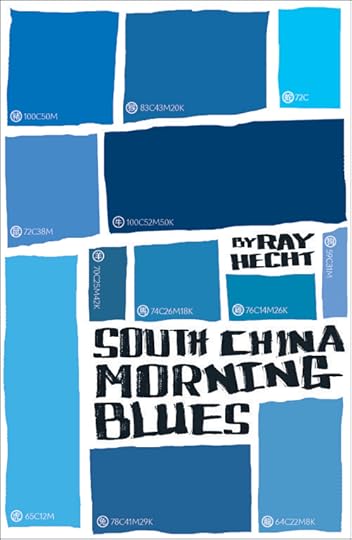 2015. Blacksmith Books. 352 Pgs.
2015. Blacksmith Books. 352 Pgs.
South China Morning Blues
By: Ray Hecht
I received and ARC copy of the book from the author in exchange for an honest review.
I had a serious love/hate relationship with this book.
I’m issuing a tepid recommendation of South China Morning Blues.
To be honest, I was a bit confused by this book, and within 30 pages (the number of pages I commit to before deciding to give up on a book) I had taken offense and was ready to quit. As someone who has lived in Shanghai for a few years and who has grown quite fond of China and Chinese culture, the complaints about and blatant disrespect towards China and its people really turned me off. Upon opening the book the reader is assaulted with foul attitudes. To make matters worse, this book is drenched in licentious behavior, which is the…
View original post 535 more words



